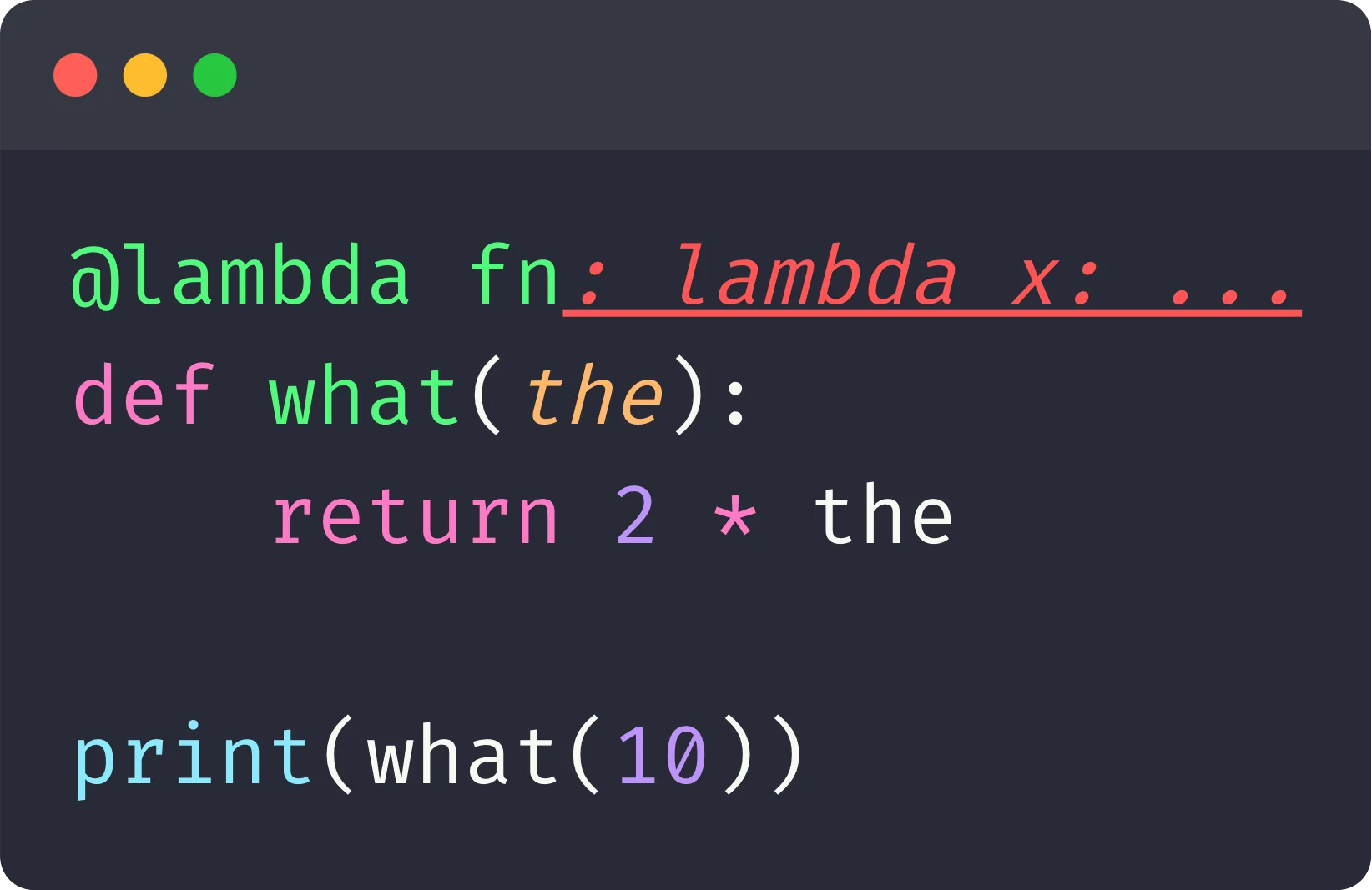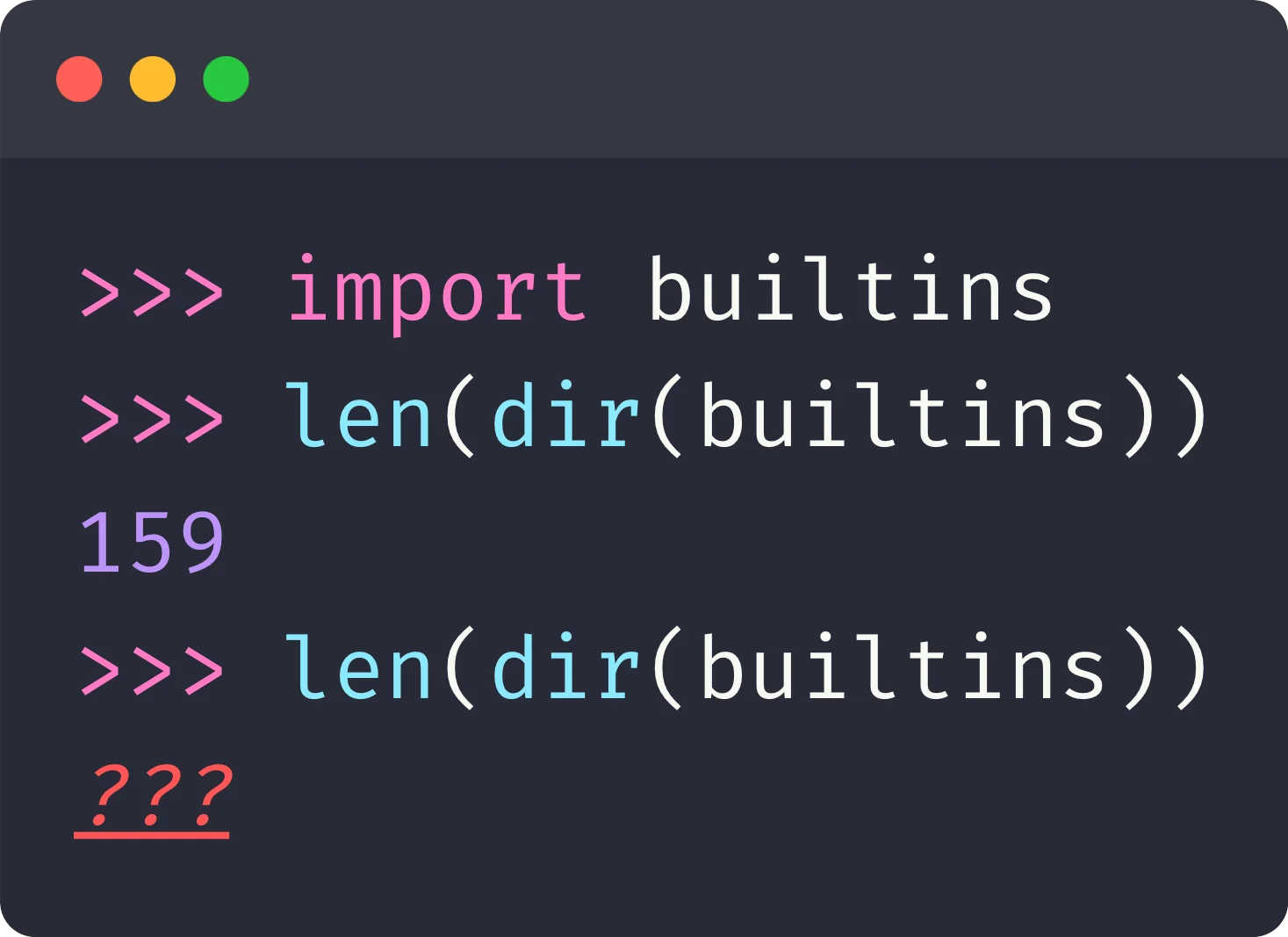These are the questions asked during the EuroPython 2025 quiz. They will test your knowledge of the Python language, the community, and of EuroPython 2025. (Unless explicitly stated, questions refer to CPython 3.13.)
At the conference, participants played to win two awesome prizes:
- 3D printer
- EuroPython 2026 ticket
A couple of PyCharm vouchers were also raffled among the participating players.
Questions
Where is EuroPython 2025 being held?
- Bikini Bottom
- Camelot
- Hogwarts
- Prague
What's the source of inspiration for Python's name?
- Ball Python (snake)
- Monty Python (comedy troupe)
- Python (psychedelic doom metal band)
Which of these was not a Summit held at EuroPython 2025?
- C API Summit
- PyScript Summit
- Rust Summit
- WebAssembly Summit
Which of these is not a module from the standard library?
__future__antigravitydataclassthis
Of these four developers, who's been a Python core developer the longest?
- Diego Russo
- Hynek Schlawack
- Pablo Galindo Salgado
- Savannah Bailey
Which of the following is not a Python keyword?
_finallythrowtype
What's printed if you run this code?

...- 20
- Ellipsis
- Nothing; you get a
SyntaxError
What's the output you get if you run this code in a fresh REPL session?

- 159
- 160
RuntimeErrorValueError
Explanations
Question 4 – standard library modules
__future__ is a module from the standard library that allows you to write “future statements”.
Although it interacts with funky special cases in the compiler, there is a module named __future__ you can import.
The module this will print the Zen of Python and the module antigravity is an Easter Egg related to xkcd comic 353.
You can verify all these by opening a 3.13 REPL and typing import ???.
dataclass, however, was just a play on the fact that the well-known module from the standard library is called dataclasses.
Question 6 – Python keywords
Python 3.13 has four soft keywords: case, match, type, ... and _!
Soft keywords are keywords that are only keywords in specific statements and can be used as regular variables elsewhere, and _ is a soft keyword in the context of case _: as a catch-all pattern while type is a soft keyword used for type aliases.
finally is a keyword used in error handling.
This means throw can't be a Python keyword.
In any instance, you can verify this with the module keyword from the standard library:
import keyword
assert "_" in keyword.softkwlist
assert "type" in keyword.softkwlist
assert "finally" in keyword.kwlist
assert "throw" not in (keyword.kwlist + keyword.softkwlist)Question 7 – crazy decorators
The question asks what's the output of this code:
@lambda fn: lambda x: ...
def what(the):
return 2 * the
print(what(10))The at sign @ syntax for decorators was extended in Python 3.9 so that any valid Python expression can be used as a decorator.
So, this is valid syntax, even though it broke my syntax highlighter.
@lambda fn: (...) is the decorator and the decorator returns lambda x: ..., which is the function that replaces the function what, which can be safely ignored.
The function returned, lambda x: ..., is a function that accepts a single argument and always returns the ellipsis ....
When what(10) is called, the 10 is passed as an argument to lambda x: ... which returns ....
The object ... is printed and its string representation is Ellipsis, so that's the output you get.
Question 8 – REPL session
The question asks what's the output of this code if ran in a fresh REPL session:
>>> import builtins
>>> len(dir(builtins))
159
>>> len(dir(builtins))
???In the REPL, the underscore _ allows you to recover the result of the previous expression.
So, when you first check for len(dir(builtins)), you get the result 159 and that also gets saved in the underscore _ name...
As it turns out, this underscore _ name doesn't go in the globals but in the built-ins:
>>> "_" in globals()
False
>>> "_" in dir(builtins)
TrueBut _ wasn't available in the beginning, so it got added afterwards, which means the length of the number of names available in builtins grew by 1.
That's how you go from 159 to 160.
Become the smartest Python 🐍 developer in the room 🚀
Every Monday, you'll get a Python deep dive that unpacks a topic with analogies, diagrams, and code examples so you can write clearer, faster, and more idiomatic code.
References
- EuroPython 2025 summits, https://ep2025.europython.eu/sessions/?type=Summit [last accessed 16-07-2025];
- Python General FAQ, Why is it called Python? https://docs.python.org/3/faq/general.html#why-is-it-called-python [last accessed 15-07-2025];
- Python Developer's Guide, Developer log https://devguide.python.org/core-developers/developer-log/ [last accessed 15-07-2025];
- PEP 641 – Relaxing Grammar Restrictions on Decorators https://peps.python.org/pep-0614/ [last accessed 16-07-2025];
- mathspp blog, The appearing built-in https://mathspp.com/blog/til/the-appearing-builtin [last accessed 15-07-2025];
- mathspp blog, underscore is a soft keyword https://mathspp.com/blog/til/underscore-is-a-soft-keyword [last accessed 16-07-2025];
